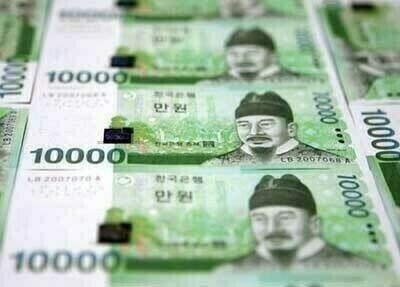
BENGALURU: Currencies and stocks in Asian emerging markets were in a holding pattern on Wednesday as traders awaited US inflation print and the Federal Reserve meeting next week to validate expectations of two US rate cuts over the rest of the year.
MSCI’s broadest index of Asia-Pacific shares outside Japan as well as an emerging markets index drifted lower. Most currencies also largely drifted around their previous closing levels.
On the macro side, investors are waiting for US economic growth data for the second quarter and personal consumption expenditures (PCE) data – the Fed’s favoured measure of inflation – on Friday to gauge the expectations of interest rate cuts this year.
Robert Carnell, head of Asia-Pacific research at ING, said a softer US PCE print alongside a low inflation reading next month “opens the possibility that …. the market which seems to be pricing in two rate cuts could start pushing a third one.”
A soft landing scenario in the United States should prompt return of flows to the emerging markets which should support the currencies and bond markets, Carnell added.
Markets are pricing in 62 basis points of easing this year, with a cut in September priced in at 95%, the CME FedWatch tool showed.
In Asia, Indian equities and currency drifted lower a day after a volatile reaction to the budget that raised the tax rate on equity derivatives trade and on capital gains.
In China, the Shanghai Composite index and the blue-chip CSI300 index fell as much as 0.9% before recovering later in the day, although the former still lingered near its five-month low.
The yuan edged lower to 7.2756 per dollar, meandering near its two-week low. Earlier in the day it slipped to 7.2770, its lowest level since mid-November last year.
Elsewhere, stocks in Singapore ticked lower. In Malaysia, the benchmark declined 0.6% weighed by a broad-based sell-off, while shares in Thailand and Indonesia fell about 0.4% each. The Thai baht and the Singaporean dollar edged higher, while the Malaysian ringgit and the Indonesian rupiah slipped. Meanwhile, the central bank Sri Lanka surprised the market with a quarter-point rate cut to propel the In South Asian nation out of its worst financial crisis in decades.
Markets in Taiwan and the Philippines were closed due to inclement weather.
